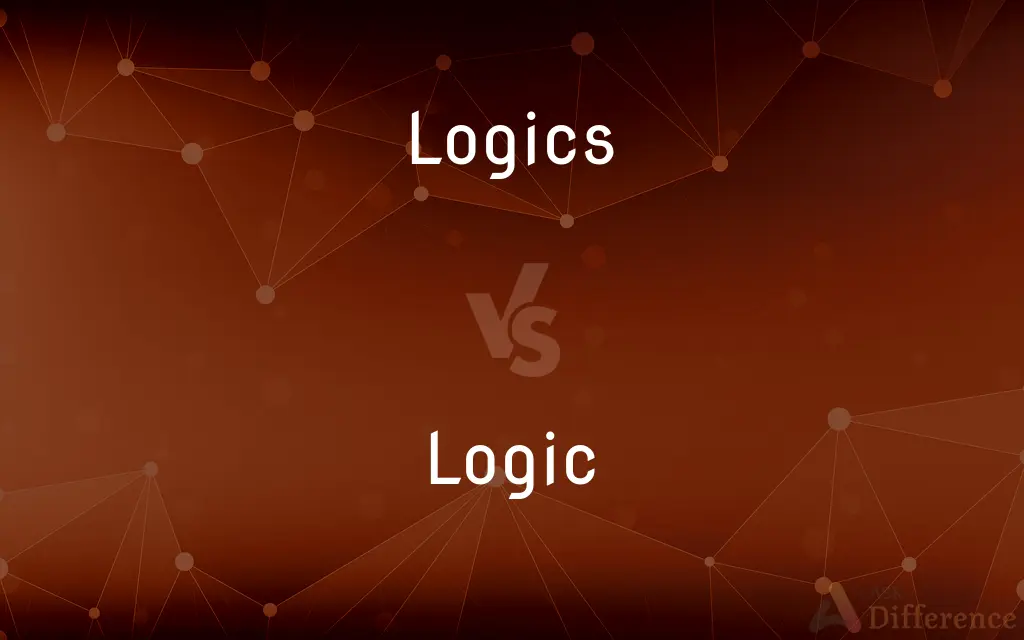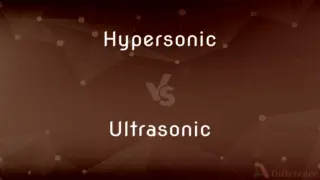Logics vs. Logic — What's the Difference?

Difference Between Logics and Logic
ADVERTISEMENT
Compare with Definitions
Logics
Plural of logic
Logic
Logic (from Greek: λογική, logikḗ, 'possessed of reason, intellectual, dialectical, argumentative') is the systematic study of valid rules of inference, i.e. the relations that lead to the acceptance of one proposition (the conclusion) on the basis of a set of other propositions (premises).
Logics
See Logic.
Logic
The study of principles of reasoning, especially of the structure of propositions as distinguished from their content, and of method and validity in deductive reasoning.
Logic
A system of reasoning
Aristotle's logic.
ADVERTISEMENT
Logic
A mode of reasoning
By that logic, we should sell the company tomorrow.
Logic
The formal, guiding principles of a discipline, school, or science.
Logic
Valid reasoning
Your paper lacks the logic to prove your thesis.
Logic
The relationship between elements and between an element and the whole in a set of objects, individuals, principles, or events
There's a certain logic to the motion of rush-hour traffic.
Logic
The nonarithmetic operations performed by a computer, such as sorting, comparing, and matching, that involve yes-no decisions.
Logic
Computer circuitry.
Logic
Graphic representation of computer circuitry.
Logic
Logical
Logic
(uncountable) A method of human thought that involves thinking in a linear, step-by-step manner about how a problem can be solved. Logic is the basis of many principles including the scientific method.
Logic
The study of the principles and criteria of valid inference and demonstration.
Logic
The mathematical study of relationships between rigorously defined concepts and of mathematical proof of statements.
Logic
A formal or informal language together with a deductive system or a model-theoretic semantics.
Logic
(uncountable) Any system of thought, whether rigorous and productive or not, especially one associated with a particular person.
It's hard to work out his system of logic.
Logic
(uncountable) The part of a system (usually electronic) that performs the boolean logic operations, short for logic gates or logic circuit.
Fred is designing the logic for the new controller.
Logic
To engage in excessive or inappropriate application of logic.
Logic
(transitive) To apply logical reasoning to.
Logic
(transitive) To overcome by logical argument.
Logic
The science or art of exact reasoning, or of pure and formal thought, or of the laws according to which the processes of pure thinking should be conducted; the science of the formation and application of general notions; the science of generalization, judgment, classification, reasoning, and systematic arrangement; the science of correct reasoning.
Logic is the science of the laws of thought, as thought; that is, of the necessary conditions to which thought, considered in itself, is subject.
Logic
A treatise on logic; as, Mill's Logic.
Logic
Correct reasoning; as, I can't see any logic in his argument; also, sound judgment; as, the logic of surrender was uncontestable.
Logic
The path of reasoning used in any specific argument; as, his logic was irrefutable.
Logic
A function of an electrical circuit (called a gate) that mimics certain elementary binary logical operations on electrical signals, such as AND, OR, or NOT; as, a logic circuit; the arithmetic and logic unit.
Logic
The branch of philosophy that analyzes inference
Logic
Reasoned and reasonable judgment;
It made a certain kind of logic
Logic
The principles that guide reasoning within a given field or situation;
Economic logic requires it
By the logic of war
Logic
A system of reasoning
Share Your Discovery

Previous Comparison
Hypersonic vs. Ultrasonic
Next Comparison
Pharmacy vs. Apothecary













































